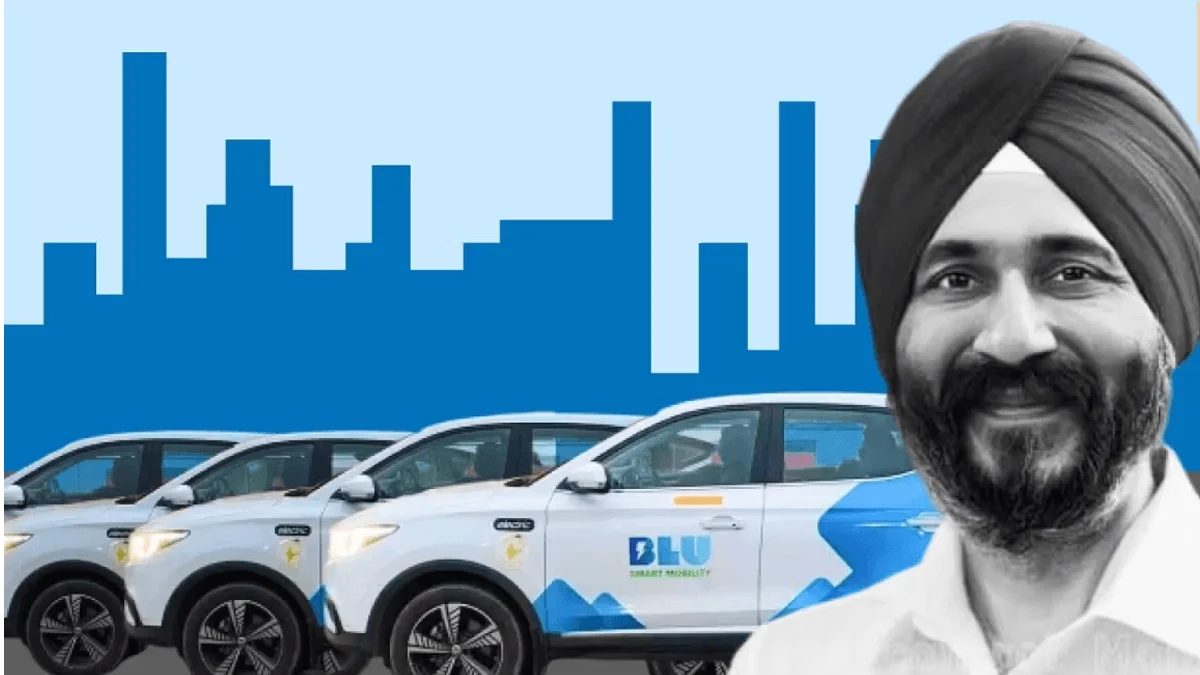Necessary Always Active
Necessary cookies are required to enable the basic features of this site, such as providing secure log-in or adjusting your consent preferences. These cookies do not store any personally identifiable data.
|
||||||
|
||||||
|
||||||
|

BluSmart’s co-founder Anmol Singh Jaggi pitched three strategic plans to shareholders before SEBI’s action exposed financial irregularities of BluSmart and Gensol Engineering. These included moving its fleet operations to Uber, acquiring funding from BP Ventures, and selling the EV ride-hailing business to Eversource Capital.
The Economic Times reported this on Monday that the timing of these proposals showed a final effort to protect BluSmart. They were sent in while the regulatory pressure on the company increased. Eventually, Anmol and Puneet Jaggi stepped down from their roles following the SEBI ban on Gensol promoters. The two founders are now under investigation for misusing company funds.
In an email sent on April 15, Anmol Jaggi suggested three strategic options for BluSmart. One of them involved shifting the company’s EV fleet operations to Uber. This would have helped BluSmart tap into Uber’s larger customer base and reduce its high operating costs. According to Jaggi, the plan would have brought down BluSmart’s monthly expenses from ₹95 crore to ₹11 crore without requiring any legal restructuring. The company aimed to replicate the success of Everest Fleet and Zypp by operating on third-party platforms.
The second plan focused on raising $6.8 million through fundings from BP Ventures, the venture capital arm of British oil giant BP plc. BP Ventures is an existing investor in BluSmart. This route would have affected “immediate leadership and governance changes”, along with “removal of certain promoter rights and board powers”. It would have also entailed the transfer of treasury oversight and financial controls, according to Jaggi’s note to shareholders.
Under the third plan, Eversource Capital would have bought BluSmart’s EV ride-hailing business. This would have happened through a slump in sales and a secondary deal worth up to ₹400 crore. The company also planned to invest up to ₹800 crore in a new company. These funds were aimed at expanding the EV fleet, building charging stations, and improving EV technology. As per the deal, the company would buy assets and give shares to key investors. Eversource wanted to combine BluSmart with its other company, Lithium Urban Technologies. This company offers EV fleet and charging infrastructure to businesses. Eversource planned to bring in new governance rules and offer ESOPs to retain top talent.
Several violations came to light after SEBI launched its investigation into Gensol Engineering. The inspection of Gensol’s EV production plant showed minimal manufacturing operations with only 2-3 personnel present at one particular unit. SEBI also exposed false declarations made by the company concerning pre-order agreements and strategic business partnerships. False information was found about 30,000 exclusive EV purchase orders which did not include pricing or delivery information.
SEBI’s regulatory actions have led BluSmart bondholders to exercise their rights under the ‘Event of Default’ clause. They are demanding immediate repayment as BluSmart faces a financial crisis. At the same time, the Ministry of Corporate Affairs is expanding its investigation.
BluSmart is in crisis after the SEBI’s probe into Gensol. Yet, Eversource Capital and Uber Technologies are showing strong interest in the company.
Eversource has offered to buy BluSmart for $90–120 million. This is a steep drop from the company’s $300 million valuation. The plan includes merging BluSmart with Lithium Urban Technologies and investing $100 million in the combined entity.
BluSmart is also rebranding it’s EV fleet under Uber Green in Bengaluru. The company is in talks with Uber India to lease 800–1,000 EVs for Uber Green. The rebranding is already visible at Kempegowda International Airport in Bengaluru.